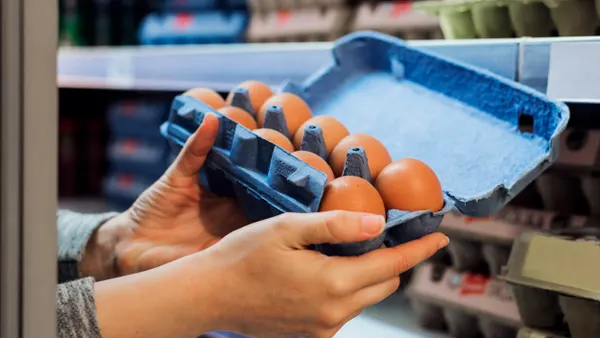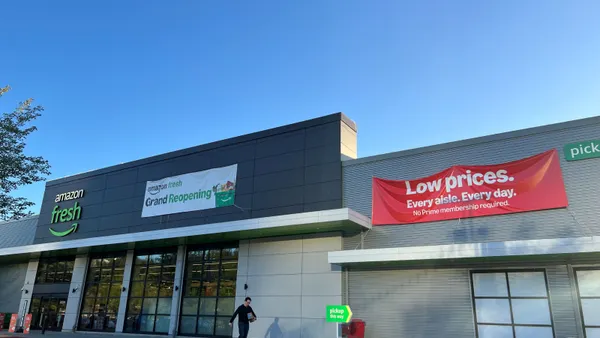Dive Brief:
- Kroger will begin carrying topical products containing CBD at stores in 17 states this week, The Detroit News first reported.
- The products offered will include balms, oils, lotions and creams, which have FDA approval, and will range in price from $3.99 to $59.99.
- Customers can find CBD products at 945 Kroger stores in states including Arizona, Colorado, Illinois, Kentucky, Michigan, Tennessee, Wyoming and others, according to CNBC.
Dive Insight:
CBD products are catching on like wildfire as consumers try to find out whether CBD delivers the health and wellness benefits it is said to offer, including anxiety and depression relief, improved sleep, chronic pain relief and more. The majority of Americans are still unclear on CBD and its purported benefits, but at least 86% of Americans have heard of CBD products, according to a recent study by Quartz. Despite its ubiquity, only 20% of those respondents reported trying CBD products and a mere 7% said they use CBD products regularly.
That could change as CBD becomes more widely available through retailers. Kroger's decision to add CBD products to its lineup will keep the grocer ahead of some of its traditional grocery peers. With such a high percentage of Americans being familiar with CBD, stocking it on grocery store shelves may motivate shoppers to go to Kroger. If they like the CBD products, those consumers could continue to choose Kroger for their grocery shopping knowing they can also snag their CBD health and wellness goods.
Kroger is one of the first major grocery retailers to stock topical CBD products, but Target, Walmart and Safety have reportedly consulted with CBD product manufacturers to better understand the space. Earlier this month, Missouri-based Dierbergs added CBD products to its inventory, which consumers can purchase in-store or via same-day delivery with Shipt. National pharmacy chains including Walgreens and CVS are also carrying the products.
Despite CBD's growing popularity, the legal status of products containing the hemp-derivative is still in question. For some states where marijuana laws remain rather strict, possession of CBD products can result in criminal penalties. The U.S. Food and Drug Administration was quick to caution consumers after the passage of the recent Farm Bill that while industrial hemp has been reclassified, the agency needs to investigate the health and safety of CBD products to determine whether regulation – or an all-out prohibition – is necessary.
Last month, the FDA held its first public hearing to explore its approach to regulating CBD products. During the 10-hour hearing, FDA regulators heard testimony from farmers, researchers, consumer advocates and business owners who offered varying positions. One of the biggest issues that CBD producers are facing is a serious lack of consistency and quality control, primarily driven by imports of CBD products manufactured overseas.











